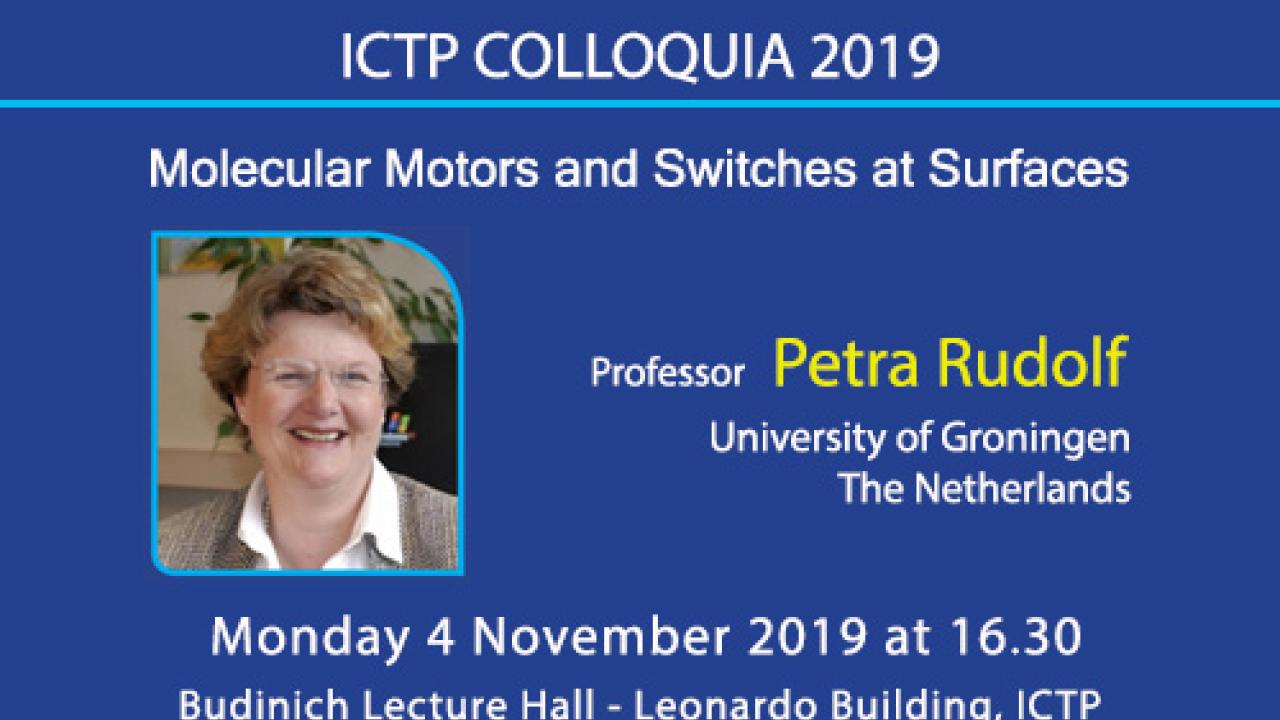
ICTP is pleased to announce a forthcoming ICTP Colloquium to be given by Professor Petra Rudolf of the University of Groningen in The Netherlands. Focusing on molecular motors, Professor Rudolf will be speaking Monday, 4 November, 2019, at 16:30, in the Budinich Lecture Hall, Leonardo Building, ICTP. The talk will also be livestreamed on ICTP’s Facebook and YouTube pages.
Professor Rudolf’s principle research interests lie in the areas of condensed matter physics and surface science, particularly molecular motors, 2D solids, organic thin films and inorganic-organic hybrids. Dr. Rudolf is the President of the European Physical Society; she was the President of the Belgian Physical Society in 2000/2001 and was elected member of the German Academy of Science and Engineering,honorary member of the Italian Physical Society, Fellow of the Institute of Physics, "Lid van verdienst" of the Dutch Physical Society and Fellow of the American Physical Society. For her work on molecular motors she received the 2007 Descartes Prize of the European Commission. In 2013 she was appointed Officer of the Order of Orange Nassau by H.M. Queen Beatrix of the Netherlands.
The Colloquium, entitled "Molecular Motors and Switches at Surfaces,” looks at nano-engines and molecular motors, which form the basis of nearly every important biological process. In contrast to this solution chosen by Nature for achieving complex tasks, all of mankind's present day technologies function exclusively through their static or equilibrium properties. One can therefore easily anticipate that the controlled movement of molecules or parts of molecules offers unprecedented technological possibilities for the future. In this presentation Dr. Rudolf shall illustrate how introducing new concepts like incorporating a ratchet mechanism, allows for the creation of molecular engines that transcend simple switches. Dr. Rudolf shall discuss how to build molecular engines that allow movements at the molecular level to be coupled to the macroscopic world, e.g., to transport macroscopic objects like drops of liquid over a surface. Another example are molecular systems that can be triggered to form spontaneously functional structures with a well-defined position on surfaces. Dr. Rudolf shall discuss molecular switches, which can be addressed with light and charge transfer and show that such systems can be employed for “read and write” functions.
















